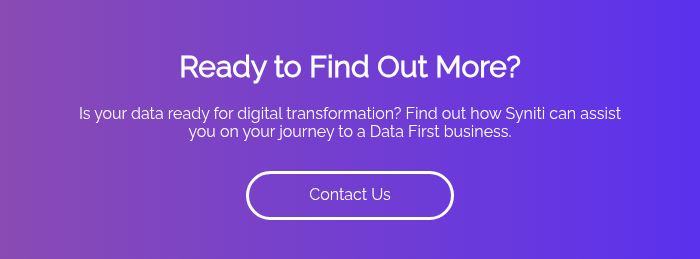Last Tuesday’s major announcement by SAP to extend mainstream maintenance for core applications of SAP Business Suite 7 software until the end of 2027, followed by optional extended maintenance until the end of 2030, marks a new horizon for SAP customers to plan their move to SAP’s Digital Core with SAP S/4HANA.
SAP also made a major commitment until 2040 to maintain support for S/4HANA. This shows that SAP is listening to their customer base and is working to ensure each and every customer’s success in their Journey, Timelines, and Plans on moving to S/4HANA. Bravo.

Time to Rethink the MOVE to S/4HANA
Yet, as SAP customers, we may have more time, but we still have the data migration initiative on the horizon to MOVE for most of the SAP customer base. This brings to mind a question that I’ve had on my mind for some time: Are we looking at this data migration initiative through the right lens? Can we start thinking about this more as an opportunity and less as a technical task or burden? What if we take this as an opportunity for our organizations to become more data-driven?
As I research the market to move to S/4HANA, 72% of organizations report that they have yet to forge a data culture. There are popular methods, technologies, and methodologies in the market with a very short-term outlook all trying to solve this problem as if it were a burden, a technical task to perform just because we have to.
All are so focused on getting to S/4HANA they forget about what’s next. These methods will focus on operational efficiency and very low-level technical details, for example loading directly to tables. They will claim other methods, that take more advantage of optimized processes in SAP S/4HANA, require too much investment.

If we are looking at the MOVE to S/4HANA through this technical task lens, we are missing a greater opportunity to get more value, trust and understanding from our data. The conversation should be much higher. What’s next after moving to S/4? How can we turn what seems to be an initiative forced on our business into something that drives a new data-driven culture for our organizations and reaps the dividends for the future, not just for our data programs, but more importantly our businesses.
According to McKinsey, data-driven organizations are 23 times more likely to acquire customers, 6 times as likely to retain those customers, and 19 times more likely to be profitable as a result.
We should be thinking about how we can leverage this MOVE that we must perform by 2027 or 2030 into something that sets our business up for success for what’s next.
Why Most Companies Still Aren't Data-Driven
Information Management or Data Governance is a hot and growing topic and practice. It’s more popular in highly regulated industries but the organizations that really want to be data driven and treat their data as an asset, invest in their data and have a data governance practice internally. To simplify it, Data Governance has multiple dimensions to it, one of which revolves around the establishment of policies, standards, roles and responsibilities as it related to the data used within the enterprise.
For SAP customers a lot of that core data — what we sell, who we sell to, who we buy from, who helps us operate, who works for us, and how all those financials are rolled up — exist in SAP products and needs to be moved to Digital Core with S/4HANA. As we perform this MOVE, all the knowledge about our data is discovered and captured in the minds of the individuals and a lot of it becomes tribal knowledge that walks out the door when that technical task and “table loading” happens.
Your Data Migration Strategy Should Serve What Comes Next
That knowledge about your data should be and can be captured so that it can be reused to accelerate the answer to the question, what’s next?
- Do you all already have a clear picture of our data and how it’s all interconnected?
- Whether in SAP or non-SAP systems, do you have a clear understanding of the business processes each data element supports, the real business rules that your business would need to run regardless of the systems you use?
- What data do you have and where does it exist?
- Who are your subject matter experts?



